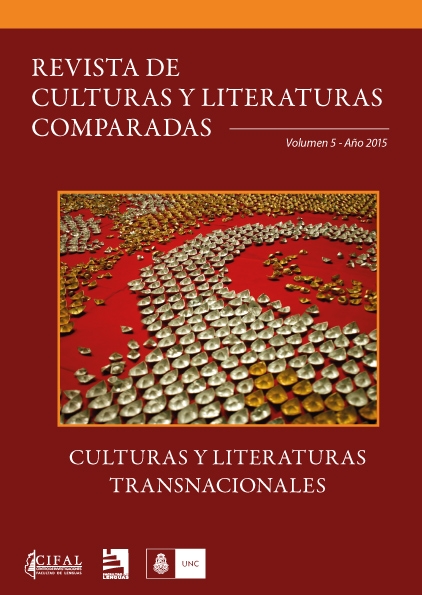Alternative Forms of the Nation in Women's Fiction
Keywords:
nation, The Farming of Bones, In the Name of Salomé, female narrativesAbstract
The present study explores the construction of the concept of nation in Edwidge Danticat's The Farming of Bones (1998) and Julia Alvarez's In the Name of Salomé (2000). It is my contention that female narratives construct alternative notions of the nation that defy the rigidity of boundaries around spheres, communities and territories, typical of traditional masculinist constructions of national identity. Danticat's novel exposes the violence implied in national identities constructed around racial superiority, exclusion, and the exaltation of powerful leaders. Alvarez's novel places emphasis on the notion of nation as process, the permeability of the public/private limit, and the deterritorialization of national identityDownloads
References
Alvarez, Julia. In the Name of Salomé. New York: Algonquin Books, 2000. Print.
Anderson, Benedict. Imagined Communities. Reflections on the Origin and Spread of Nationalism. London & New York: Verso, 2006. Print.
Ashcroft, Bill, Gareth Griffiths and Helen Tiffin (Eds.). The Post-Colonial Studies Reader. London and New York: Routledge, 1995. Print.
Benhabib, Seyla. Las reivindicaciones de la cultura. Igualdad y diversidad en la era global . Buenos Aires: Katz Editores, 2006. Print.
Danticat, Edwidge. The Farming of Bones. New York: Penguin Books, 1999. Print.
Gregory, Derek et al. (Eds.). Dictionary of Human Geography. Oxford: Wiley – Blackwell, 2009. Print.
Hall, Stuart. “Race: The Floating Signifier”. Goldsmiths College. New Cross, London. Lecture. Web. 20 Nov. 2013.
Massey, Doreen. Space, Place, and Gender. Minneapolis: University of Minnesota Press, 2001. Print.
Sharp, Joanne P. “Gendering Nationhood”. Bodyspace. Destabilizing geographies of gender and sexuality. Ed. Nancy Duncan. London and New York: Routledge, 1996. 97-108. Print.
Yuval-Davis, Nira. Gender and Nation. London: SAGE, 2012. SAGE Knowledge. Web. 20 Oct. 2012.
Downloads
Published
Issue
Section
License
Aquellos/as autores/as que tengan publicaciones con esta revista, aceptan los términos siguientes:
a) Los/as autores/as conservarán sus derechos de autor y garantizarán a la revista el derecho de primera publicación de su obra, el cual estará simultáneamente sujeto a la Licencia de reconocimiento de Creative Commons.
b) La cesión de derechos no exclusivos implica que la publicación de los artículos en la presente revista no quita la posibilidad o el derecho al autor/a de publicar su obra de manera posterior en otras revistas u órganos editoriales y la autorización por parte de los/as autores/as para que el trabajo sea depositado en los repositorios institucionales, tales como el Portal de Revistas de la Universidad Nacional de Córdoba.



